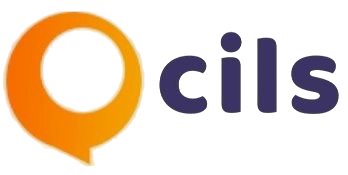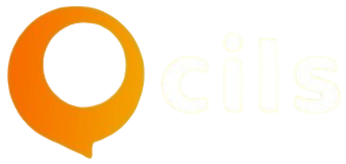What Is SEO and Why Do You Keep Hearing About It?
You’ve spent five minutes at most in the realm of digital marketing or creating a website, and you’ve most likely heard the term SEO before. It’s like one of those buzzwords that appears to pop up everywhere—on blogs, in marketing videos, and most notably in discussions about increasing online presence.
SEO, or Search Engine Optimization, is the practice of enhancing your website and its content to improve its ranking on search engines like Google. When someone types a query into a search engine, they’re presented with a list of results. SEO is what helps determine whether your site shows up at the top of that list—or gets buried under pages of competitors.

What Is SEO and Why Do You Keep Hearing About It?
You’ve spent five minutes at most in the realm of digital marketing or creating a website, and you’ve most likely heard the term SEO before. It’s like one of those buzzwords that appears to pop up everywhere—on blogs, in marketing videos, and most notably in discussions about increasing online presence.
But what is SEO, anyway? And why do businesses, bloggers, and content creators care so much about it?
Here’s the breakdown in a way that’s easy to read, easy to comprehend, and actually useful.
What Does SEO Stand For?
SEO refers to Search Engine Optimization. It’s the act of making your site and content display in search engines such as Google when individuals search for something related to your business or subject matter.
Suppose you’re a bakery owner in Delhi, SEO makes your site pop up when somebody searches “best cupcakes in Delhi” on Google.
How Search Engines Work (In Simple Terms)
Before diving deeper, let’s quickly understand how search engines like Google work:
1. Crawling:
Google uses bots (called spiders) to scan and read your website.
2. Indexing:
The pages which are scanned by the crawler are well organised and stored in databased by Google.
3. Ranking:
When someone searches for something, Google looks at its index and displays the most relevant pages.
SEO is all about making your website easy for these bots to crawl, understand, and rank well.
Why Is SEO So Important?
That’s why SEO continues to come up everywhere on the internet:
• Free Traffic:
In contrast to paid advertisements, SEO generates visitors without spending you money for each click.
• Improved Credibility:
Individuals believe sites that appear on Google page one.
• Long-Term Outcomes:
Whereas paid advertisements lose effect the instant you cut back on payments, quality SEO can generate traffic for many months or years.
• Better User Experience:
SEO also involves making websites faster, mobile-friendly, and better content — all of which benefit users.
Regardless if you’re a local business, an e-commerce shop, or a blog owner, SEO makes you discoverable by the right people.
The 3 Pillars of SEO
SEO can appear complex, but it can be divided into three categories:
1. On-Page SEO
This is optimizing the content on your real website:
- Using keywords that people look for
- Writing useful, well-formatted content
- Including headings, images, and meta tags
- Making internal links between your pages
2. Off-Page SEO
This is concerned with activity outside your site to enhance its authority:
- Earning backlinks (other sites linking to yours)
- Social media references
- Guest blogging on related websites
The more reputable sites that link to yours, the more authentic your site seems to Google.
3. Technical SEO
This deals with the backend and framework of your site:
- Quick loading speed
- Mobile responsiveness
- Secure (HTTPS) connection
- XML sitemap and clean URLs
Even with great content, bad technical SEO can prevent your site from showing up well.
What Are Keywords and Why Do They Matter?
Keywords are the phrases and words individuals search on search engines. For instance:
- "Best running shoes under 3000"
- "How to make banana bread"
- "Digital marketing tips for beginners"
Good SEO begins with keyword research — learning the keywords your audience is looking for and organically using them in your content.
But be careful: too much focus on keywords can do more harm than good to your rankings. It’s about finding a balance.
How Long Does SEO Take to Work?
SEO is not a miracle, and it is can’t give result instantly. It typically takes 3 to 6 months (sometimes longer) to notice real results. This varies on:
- How competitive your niche is
- The state of affairs on your website at the moment
- The quality and consistency of your SEO work
Imagine SEO is visiting the gym. You won’t get results from a single visit, but become consistent, and the rewards will follow.
Common SEO Myths (Debunked)
Let’s dispel some myths:
• "SEO is a one-time thing."
No way. SEO is continuous. Algorithms update, and so does your competition.”.
• "Only the number one position counts."
Being #1 is wonderful, but even being on the first page gets a tremendous amount of traffic.
• "I have to submit my website to Google."
Google discovers and indexes your site automatically if it’s correctly linked.
• "Purchasing links will enhance my SEO."
Paid or link spam can get you penalized. Instead, focus on acquiring natural links.
SEO vs. Paid Ads: Which Is Better?
SEO and paid advertising (such as Google Ads or Facebook Ads) are both strong — just different.
SEO
Long-term / sustained results
Free (organic) traffic
Builds trust with people over time
Paid Ads
Instantly visible
Pay per click (PPC)
Great for promotions & quick wins
Intelligent marketers use both, depending on their needs and budget.
SEO in 2025: What's Changing?
Search engines are changing. Here are a few new ways you should be aware of:
• AI-Powered Search:
Google now uses AI (such as BERT and MUM) to improve understanding of content.
• Voice Search:
Increasingly, consumers are relying on voice assistants to search (“Hey Google, where’s the closest cafe?”).
• Mobile-First Indexing:
Google favors mobile site versions.
• Core Web Vitals:
Page speed, interactivity, and visual stability have become direct ranking factors.
Keeping up with these trends keeps your SEO strategy in top shape.
How to Begin with SEO
If you want to start now you don’t need an expert. Here are some tips for beginners:
Begin a blog:
Post regularly useful content for your niche.
To begin with a blog post the free tools are like best friend to us you can use tools like Ubersuggest Google Search Console, Google Analytics and so on.
Write the post keeping people in mind not for search engines.
Constant learning:
SEO constantly evolves, so remain curious and flexible.
Final Thoughts
SEO might sound complex, but at its core, it’s about helping people find the answers they’re looking for — and making sure your content shows up when they search.
If you want your website to grow, attract new visitors, and build credibility without burning money on ads, SEO is your best friend.
So next time someone brings up SEO, you won’t just go along with it — you’ll have a good idea of what it is and why it matters.




